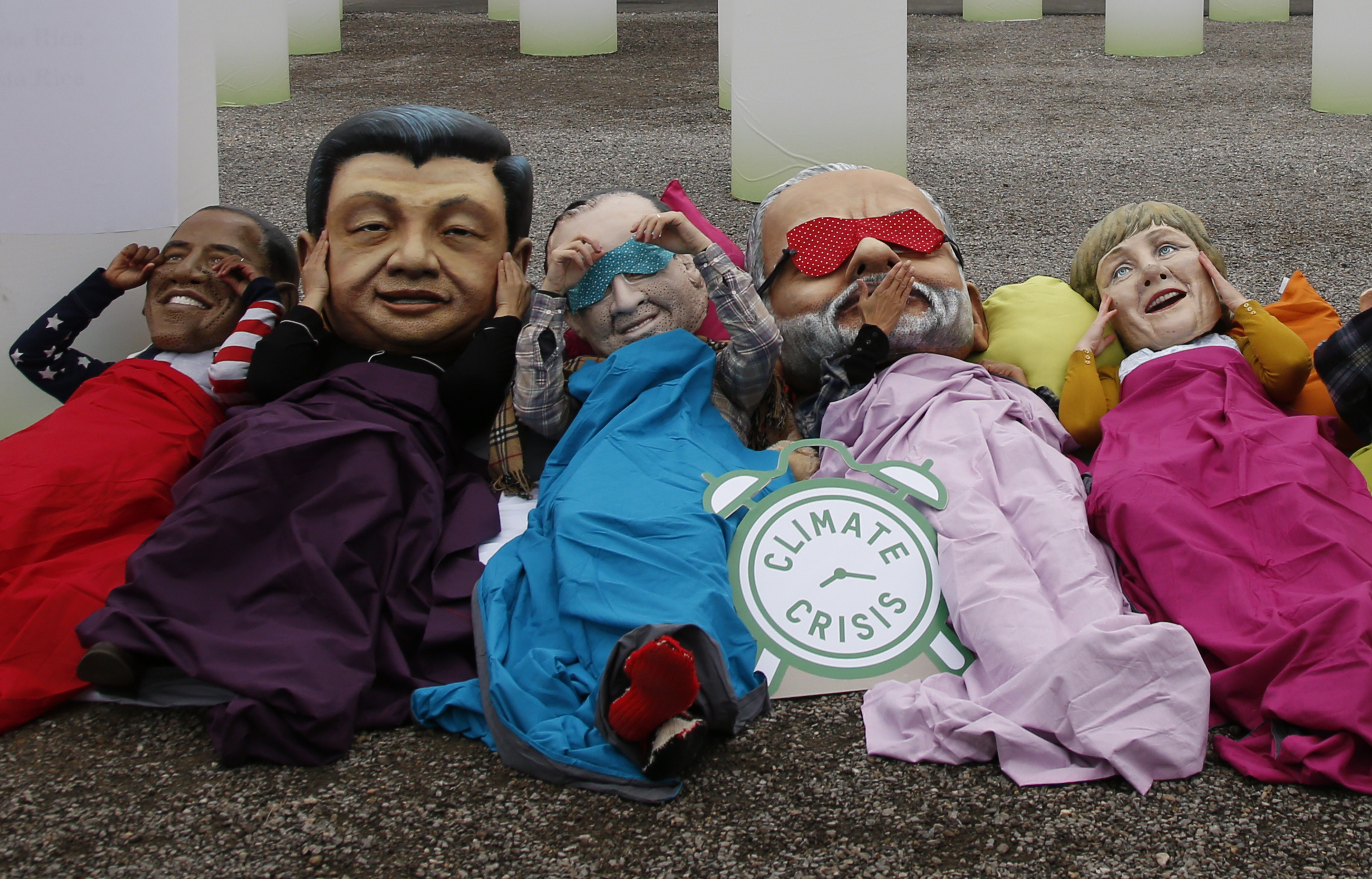Why the Paris climate deal is a total sham
In the end, this was about getting great headlines and photo-ops, not climate change


A free daily email with the biggest news stories of the day – and the best features from TheWeek.com
You are now subscribed
Your newsletter sign-up was successful
Oh, the self-congratulation! Heads of state and foreign ministers shaking hands and patting each other on the back for a historic, wonderful climate deal. And oh, how the media is lapping it up. Historic, historic, we tell you!
Except that it's all a sham.
Let's get the big issue out of the way first, the one everyone knows: The agreement is not legally binding. It's not a treaty. It's just an agreement to give it a shot.
The Week
Escape your echo chamber. Get the facts behind the news, plus analysis from multiple perspectives.

Sign up for The Week's Free Newsletters
From our morning news briefing to a weekly Good News Newsletter, get the best of The Week delivered directly to your inbox.
From our morning news briefing to a weekly Good News Newsletter, get the best of The Week delivered directly to your inbox.
Now, the supporters of the deal, such as Secretary of State John Kerry, tell us that doesn't mean the deal is worthless, because there will be enforcement through public pressure, and "naming and shaming."
This, by itself, isn't ludicrous. I mean, yes, it doesn't seem very likely that Greenpeace can do much to shame the Politburo of China's Communist Party, but at the end of the day, yes, public pressure and shaming can and sometimes do change things.
But this is actually why the deal actually goes against that goal, because the targets agreed upon — or rather, not agreed upon — by the parties are a sham.
Manhattan Institute fellow Oren Cass breaks it down:
A free daily email with the biggest news stories of the day – and the best features from TheWeek.com
The negotiating framework established at a 2014 conference in Lima, Peru, requires each country to submit a plan to reduce greenhouse-gas emissions, called an “Intended Nationally Determined Contribution” (INDC). Each submission is at the discretion of the individual country; there is no objective standard it must meet or emissions reduction it must achieve. [Cass, via Politico]
In other words, each country determines its own target. Not only that, but China and India vetoed a provision that would require targets to be set according to an agreed upon objective standard. So not only does each country get to set its own target under the deal, but it can use whatever scheme it desires.
Not surprisingly, many countries, especially China, the world's biggest polluter, have taken advantage of this provision and set "targets" for themselves that are not targets at all. This is why most outside observers, such as the rabid Tea Party conservatives over at the MIT’s Joint Program on the Science and Policy of Global Change, agree that even if the targets under the deal are hit, it will have no impact on the climate.
This should make you livid, especially if you believe "naming and shaming" can work. If you want to name and shame countries, you need some standard to hold them to. The deal makes naming and shaming polluting countries harder, because now they can say, "What are you talking about? We're abiding by our targets under the Paris climate deal."
As Cass notes, the whole deal is about money. After a previous round of the talks in Copenhagen collapsed, the U.S. under Secretary of State Hillary Clinton tried to save face by proposing a "green climate fund." With the funding to spend $100 billion per year — equivalent to all of the OECD countries' foreign aid budgets — it would help developing countries go green.
Again, the underlying concept is potentially sound. The idea of "climate finance" is that emerging countries don't want to reduce their emissions because it would wreck their economies, so rich countries, for whom going green is easier, help them transition to green technology.
But the train has left the station. It might be a good idea to say, "Do this and I'll pay you for it," but it's not so good if you then say, "Well here's the money in exchange for nothing." Which is what just happened at the Paris climate deal, since everyone signed on to meaningless targets. Now the green camp has lost its only point of leverage, since they already agreed to fork over the money in exchange for nothing.
In the end, the process sabotaged itself. In the end, getting great headlines and photo-ops mattered more than actually reducing carbon emissions. The people who should be livid about this shouldn't be cranky right-wingers like me, but people who care more deeply about reducing carbon emissions.
But maybe some good will come out of this whole farce. After all, people like me have been saying all along that this is the wrong way to go, that this idea of a global carbon framework was doomed in conception because emerging countries would never agree to it. Toldja.
Climate change is a real and serious concern. Which is why we need to reinvent the fight against climate change. As I've been saying, there are technological solutions that can do the job much better and much more cheaply. Let's get started.
Pascal-Emmanuel Gobry is a writer and fellow at the Ethics and Public Policy Center. His writing has appeared at Forbes, The Atlantic, First Things, Commentary Magazine, The Daily Beast, The Federalist, Quartz, and other places. He lives in Paris with his beloved wife and daughter.
